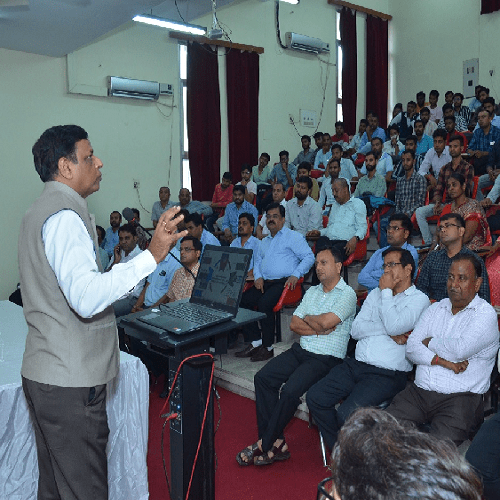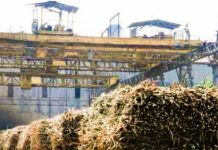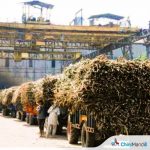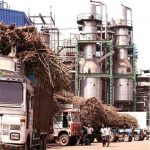Under the auspices of Council of Student’s Activities, “World Biofuel Day” was celebrated at National Sugar Institute, Kanpur on the theme “Indian Sugar Industry-Fueling Energy Requirements”.
Dr.(Mrs.) Seema Paroha, Professor Biochemistry in her introductory briefed the students about aim of organizing this day. We celebrate this day to raise awareness about the use of non-fossil fuel as an alternative to conventional fossil fuel thus to minimize carbon emissions. In India where about 70% of the power generation is thermal and for automobile fuel the country heavily depends upon imports, the subject matter assumes greater significance, she said.
Talking about carbon emissions and green house gases, Prof. D. Swain stressed upon reducing dependence on fossil fuels as they are not forever and also to minimize carbon and green house gases emissions. Greenhouse gases trap heat and make the planet warmer. Human activities are responsible for almost all of the increase in greenhouse gases in the atmosphere over the last 150 years. The largest source of greenhouse gas emissions from human activities is from burning fossil fuels for electricity and transportation, he said. Sugar Industry can be an excellent source for providing clean, green and renewable energy, thus, addressing environmental and energy security issues, Prof. Swain added.
In his address, Shri Narendra Mohan, Director, National Sugar Institute highlighting the key role played by the sugar industry to make ethanol blending programme a success said, “Indian Sugar Industry is all set to play a dominant role in Ethanol Blending Programme. Ethanol, which is now a favorite tool to balance sugar demand-supply scenario has to be preferred for its multiple advantages of saving foreign exchange, energy security and having a green fuel.
Sugar Industry, in future can tap the un-exploited potential of power generation through sugarcane plant residues and production of compressed bio-gas from filter cake and other agro waste. The power export potential through bagasse & sugarcane plant residues can be to the extent of 15,000 MW or even more. Similarly, we can expect about 2MMT of CBG from filter cake and spent wash from molasses based distilleries. All enabling economic and environmental sustainability, he said.
Farmers continue agitation as the meeting with officials remained inconclusive
Phagwara: Sugarcane farmers continued their indefinite agitation for pending cane dues on the Ludhiana-Jalandhar National Highway at Phagwara on Tuesday, as the meeting with the government officials ended without any conclusion, according to tribuneindia.
The meeting of farmers with Deputy Commissioner Vishesh Sarangal at the SDM office remained inconclusive on Tuesday.
Manjit Singh Rai, president of BKU (Doaba) said, the farmers will continue their agitation till they get their pending dues worth Rs 72 crore.
The commuters are facing problems due to the blockade of the highway.
Sukhbir Singh Sandhar, chairman of Sandhar Sugar Mill, alleged that the red tape is causing a delay in cane payment. He further stated that neither he nor his family members purchased any property anywhere in the world in the past 10 years. He was commenting on the DC’s order of attaching his property in all 22 districts of Punjab.
“I haven’t sent any money abroad from any bank and the government can check all my bank accounts and other documents,” he said.












